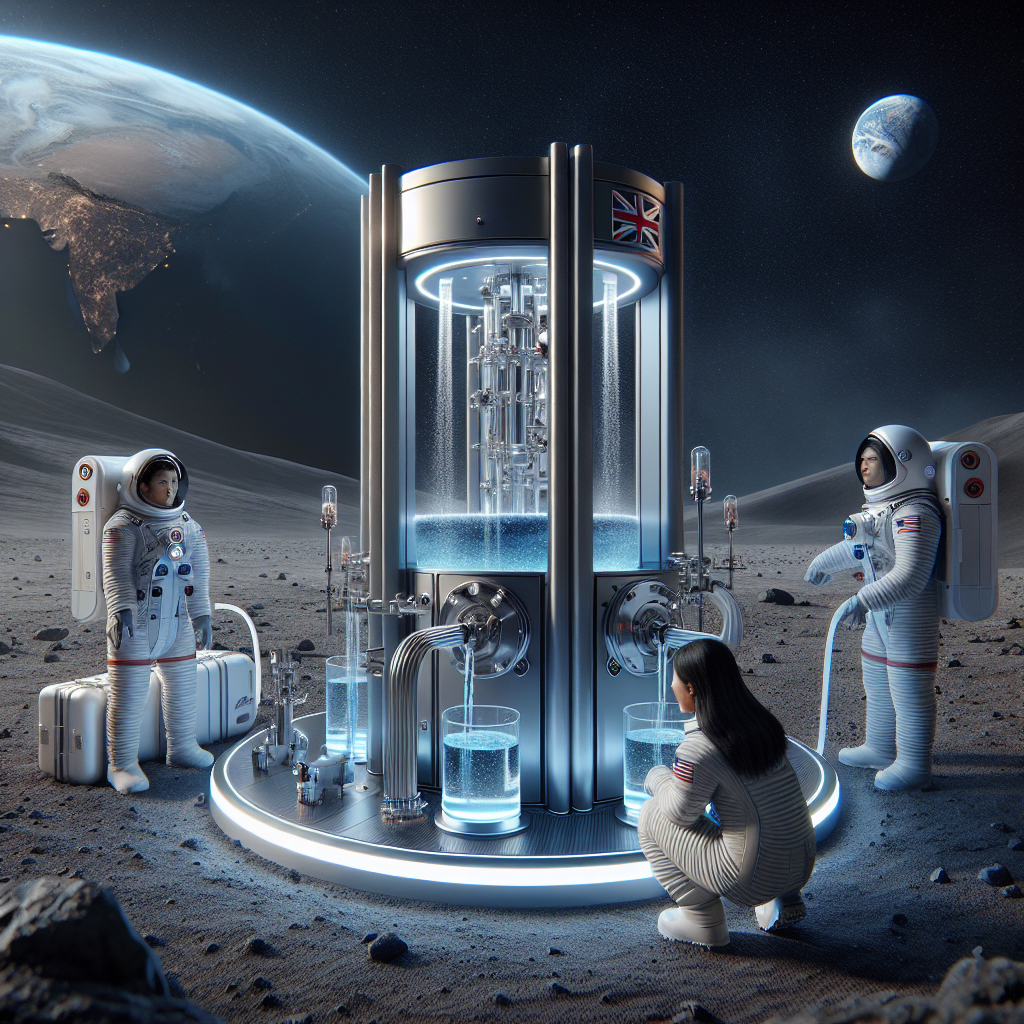Listen to this post: Clean Water on Moon: UK Firm Wins Innovation Prize
Clean Water on Moon: UK Firm Wins Innovation Prize
Summary
A UK-based technology company has taken a giant leap for sustainable space innovation by developing a groundbreaking solution to create clean water on the Moon. Their pioneering work has earned them a prestigious innovation prize, recognizing their contribution to the future of lunar exploration. The award signals not only a remarkable technical achievement but also a turning point in how humanity might sustain long-term missions beyond Earth.
The unnamed UK firm engineered a system capable of extracting and purifying water in the Moon’s harsh environment—an accomplishment fundamental to any future lunar bases or colonization plans. Their technology stands out for its ability to work within the Moon’s unique conditions—extreme temperature fluctuations, low gravity, and a lack of atmosphere—while maintaining efficiency and sustainability.
This breakthrough is part of a broader wave of space innovation focused on In-Situ Resource Utilization (ISRU), where materials found on extraterrestrial bodies like the Moon or Mars are used to support human life and mission operations. The goal is simple but ambitious: reduce dependency on Earth-supplied materials and make space exploration more self-sufficient.
The company’s solution captured the attention of both UK Space Agency officials and global space industry leaders. Winning the prize not only accelerates their technology’s development but also opens doors to future collaborations with international space missions, including NASA’s Artemis Program and European Space Agency initiatives.
With the rising interest in establishing lunar bases within this decade, water production is a cornerstone of space sustainability. By turning lunar ice or regolith into potable water, astronauts can stay longer on the Moon and eventually push toward Mars.
Analysis
This achievement by a UK-based company marks an exciting inflection point in both space exploration and sustainable technology development. Securing clean water on the Moon isn’t just an engineering triumph—it reshapes the trajectory of human presence off-Earth.
By establishing a method for harvesting and purifying water in situ, this innovation tackles one of the most critical barriers to long-term human habitation on the Moon: resource logistics. Historically, every kilogram launched into space costs thousands of dollars, making water—heavy and essential—an expensive cargo. Now, astronauts may no longer rely solely on Earth shipments.
Why This Matters
- Sustainability in Space: Self-sufficient life support systems enhance mission safety and open the door to larger and longer expeditions.
- Boost for ISRU Initiatives: This progress aligns with global strategies focused on using local space resources to fuel future missions.
- Economic and Strategic Advantage: The UK positions itself as a leader in space resource innovation, potentially partnering in future missions with NASA and ESA.
Industry Trends
Space agencies and commercial players alike have been investing heavily into ISRU solutions. NASA, for example, has partnered with private companies through its Tipping Point program to develop technologies like oxygen generation from lunar regolith and power sources independent of the Earth-Sun cycle.
According to recent reports from the European Space Agency (ESA), “Lunar water extraction is no longer science fiction. It’s a necessity for making missions sustainable and cost-effective.”
“Unlocking lunar water changes everything—from crewed missions to fuel production. It’s the beginning of a long-term residence on the Moon.”
Dr. Elena Schmidt, Lunar Development Analyst, ESA
As the Artemis Program gears up to return humans to the Moon and establish a permanent outpost, innovations like this water system will play a starring role. Furthermore, water can serve dual purposes—not only for human consumption but also as a source for hydrogen and oxygen, the core ingredients of rocket fuel.
The Road Ahead
Looking forward, the successful UK innovation could be a catalyst for additional investment in Lunar tech startups across Europe. It also shows a shift from theoretical space science toward practical application with commercial viability.
Investors, governments, and space agencies are likely to support further advancements of this technology as part of their Moon-to-Mars infrastructure preparations.














